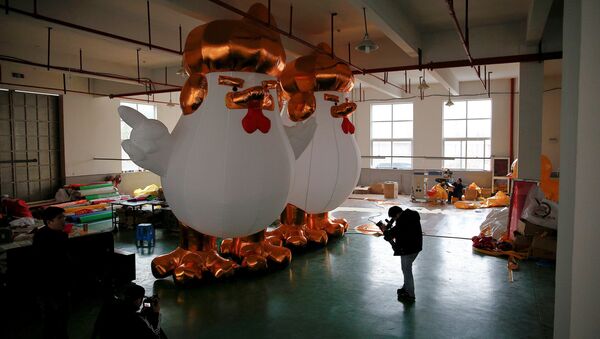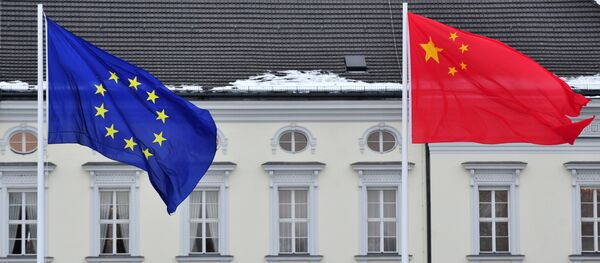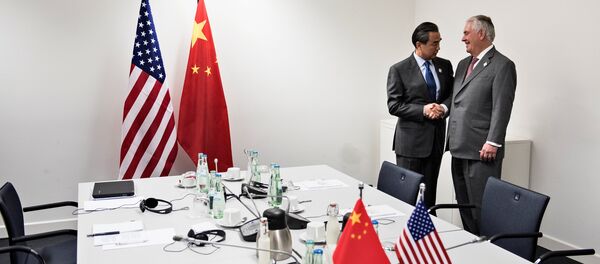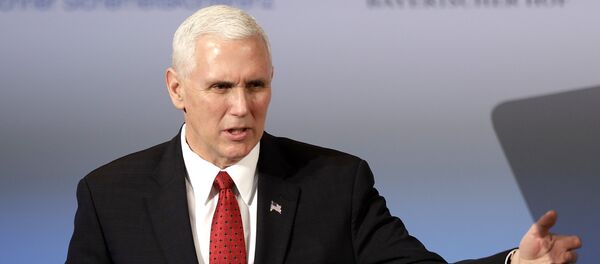US President Donald Trump had been seeking to control the use of his name in the country for years, but had had no luck in China's court system. Days after the US presidential election, however, the country announced that it had awarded the trademark to Trump; now, after a three-month waiting period, the Trump Organization officially holds the trademark of the Trump name on construction-related activities in China.
This order of events makes some uneasy: Trump fails to win the trademark until his political clout is obvious, then is given it provisionally; Trump talks tough on China but then voices support for the One-China policy, and the last trademark hurdle is overcome.
Indeed, ThinkProgress reports that China violated its own law to give Trump the coveted trademark, as the country's trademark rules forbid trademarking the names of foreign leaders.
"China's decision to award President Trump with a new trademark allowing him to profit from the use of his name is a clear conflict of interest and deeply troubling," Senator Dianne Feinstein of California said in a statement February 17.
"If this isn't a violation of the Emoluments Clause, I don't know what is."
The Emoluments Clause of the US Constitution prevents US presidents from taking gifts and other payments from foreign governments, among other prohibitions. Trump's many-tentacled business interests and his unwillingness to fully divest from them means he is likely to face more accusations of violating the constitution as his presidency continues. AP reports that Trump has 49 trademark applications on his name pending and that many of the 77 Trump trademarks that exist already will need to be renewed during his term.
Trump is already being sued by government ethics watchdog Citizens for Responsibility and Ethics in Washington for violating this clause.
Trump was antagonistic toward China during his campaign, accusing them of currency manipulation and threatening to impose a 45% import tariff on Chinese goods, and launched his presidency with a controversial conversation with the leader of Taiwan, something US presidents have avoided for decades. In December, Trump wondered in an interview with Fox News why the US should adhere to the One-China policy, which recognizes that China sees Taiwan not as an independent nation but as a breakaway province, unless China agrees to better trade terms. He later told the Wall Street Journal that "everything is under negotiation, including One-China."
Since taking office, however, Trump has softened his stance somewhat. He has not declared China to be a currency manipulator, and he has stepped back from his most dramatic promises to tax Chinese goods. Some wonder why.
"The fact that this decision comes just days after a conversation between President Trump and President Xi Jinping where President Trump reaffirmed the US policy of ‘One China' is even more disturbing as it gives the obvious impression of a quid pro quo," Feinstein said in her statement.
"And this is just the start. Media reports state that the president has dozens of additional trademark applications pending just in China. These types of conflicts are exactly what we feared would happen: the president profiting off of his public service. I am deeply concerned that China and other countries will make certain decisions that will benefit the president with the hope of influencing his foreign policy decisions."
If China has indeed violated its existing laws to grant Trump the trademark, it "would seal Trump's fate from an emoluments clause perspective because it would show beyond doubt that this unusually valuable trademark was indeed a ‘present,' and not simply a recognition of Mr. Trump's preexisting rights under the law of China," Larry Tribe, a professor of constitutional law at Harvard Law School, told ThinkProgress.
"This is yet another reason that President Trump should fully divest his interests. There's no other way to ensure full transparency and avoid conflicts of interest," Feinstein said.





